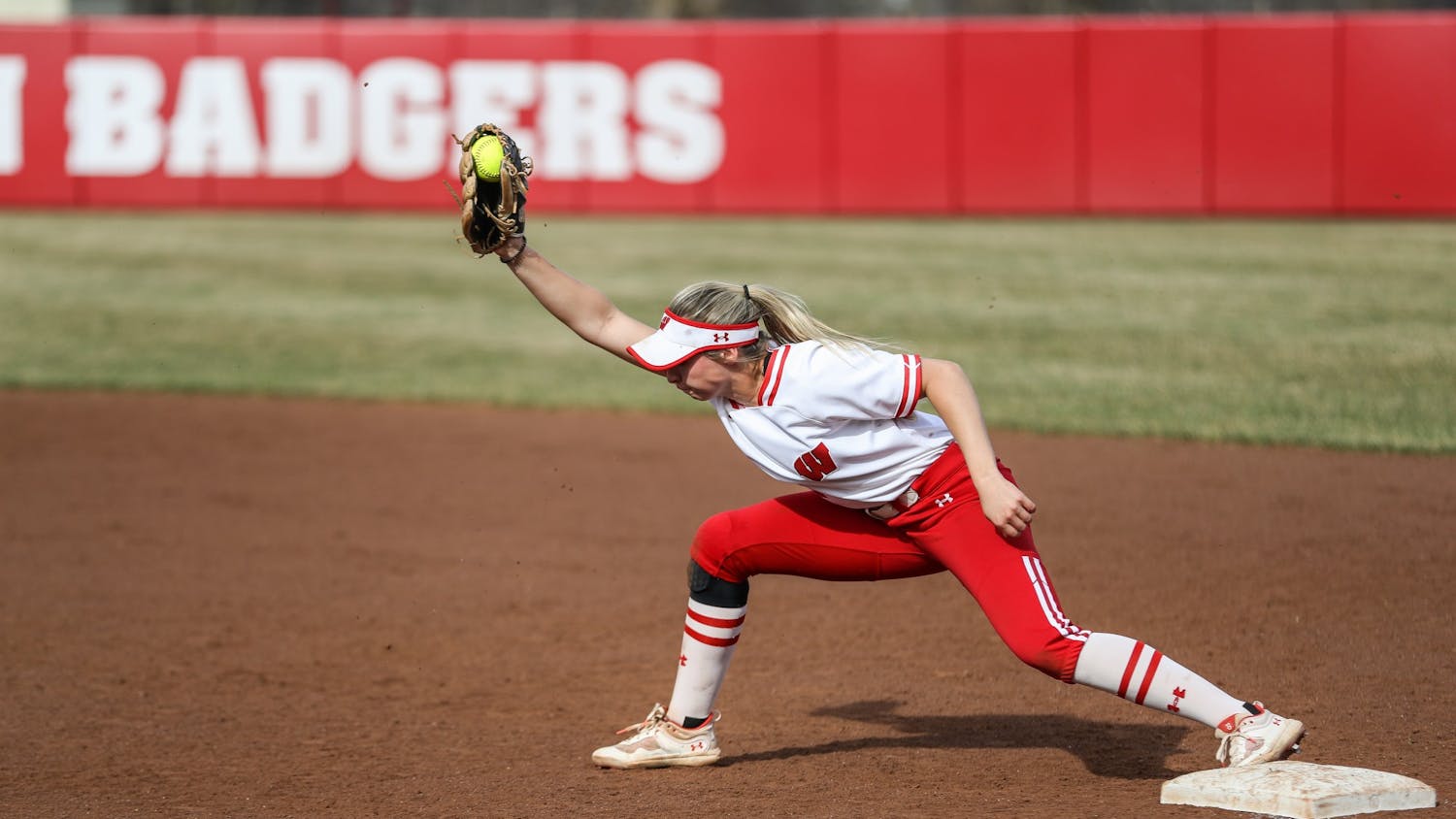Trigger warning from the writer: This story contains quotes with violent and threatening language toward women.
Last week I drove out to Ann Arbor to cover the Badgers’ football game against the Michigan Wolverines. As a basketball writer, it was the first time I’d spent in a football stadium’s press box.
It was an amazing experience; the box was luxurious, the food was delicious and the game was a nailbiter. I had the time of my life, plain and simple.
If I had to guess, I’d say 95 percent of the journalists and media personnel at the game were men. There were very, very few women there. That’s probably pretty typical for a football game, yet it’s surely an improvement from ten years ago.
As a sports writer who is a man, I cannot begin to understand the experiences of women in sports journalism, and I want to stress the importance of women’s voices in this discussion. I can, however, describe how I have seen women writers treated.
As soon as I sat down in the press box, I was surrounded by men spewing facts and statistics that surely only they could know. Several seats to my right, I heard a man “explaining” to a woman in very simple terms why the Wolverines were going to win. Because, of course, why would someone qualified enough to be in the press box know anything about the game about to take place?
It’s a big problem in society—which is amplified greatly in sports—that men tend to silence the voice of their female peers by acting or speaking in a way that implies they know more. There are so many microscopic, insignificant details about every game and every team that everyone does likely know something that most others don’t. But in a field where women have been constantly pushed away and shunned at every turn, men have a monopoly on voice.
The presence of women in sports journalism, like many fields, is relatively new. An evolving country has opened up new doors and produced yellow brick roads for women to walk on on their way to the top. Or so we’re told.
The environment of the press box, with everyone spewing information left and right and trying desperately to appear more knowledgeable than the person next to them, is not a welcoming one for women. It’s emblematic of the problems facing women in sports on a daily basis. There aren’t hurdles in front of them, there are six-feet thick, 10-feet tall cement walls with barbed wire on top and guard towers placed every 50 feet.
This isn’t hard to spot. Sure, it might seem harmless to the sportswriter who thinks he’s just chatting about the game with his coworker, but when he leans over after every play and tells her how it should have been run, it’s implying that he knows more than her. But it’s microaggression that compounds the effect of working in a field where women face literal death threats every day.
A quick Twitter search reveals the reality of being a female sportswriter. “u have a professional hair stylist/make up artist & you are barely a 4. also.not very knowledgeable about sports. ur show sucks,” writes Twitter user @vjr97 in response to a Katie Nolan tweet about a streaker at a football game (Nolan works for Fox Sports 1). An unprompted tweet to Kate Fagan, an ESPN reporter, reads, “f--- you. You are a liberal c--- f--- who needs to jump off a bridge.”
These aren’t isolated incidents. You could pick any prominent woman in sports journalism and throw her name into the Twitter search bar along with the “C” word. There are results for Nolan, Fagan, Sarah Spain, Erin Andrews, Jessica Luther, Hannah Storm—the list goes on and on.
Twitter is a mandatory resource for today’s journalists, yet it’s become a platform for women in media to be verbally assaulted. It’s a dangerous place.
There’s a powerful video floating around of men reading similarly horrifying tweets to Spain and Julie DiCaro. I challenge you to watch it without crying.
Sports are often unwelcoming for women. Sports media might be even less so. It is so much more difficult for a woman to crack into the field than a man. Yet despite all the obstacles, many women still fight their way to success and find leading roles.
So the next time you lean over to your fellow sportswriter to tell her what should have just happened, bite your tongue—she probably knows more than you.
Do you think women in sports media are treated unfairly? Is the sports world moving toward a more welcoming environment for everyone? Let Thomas know what you think at sports@dailycardinal.com.





